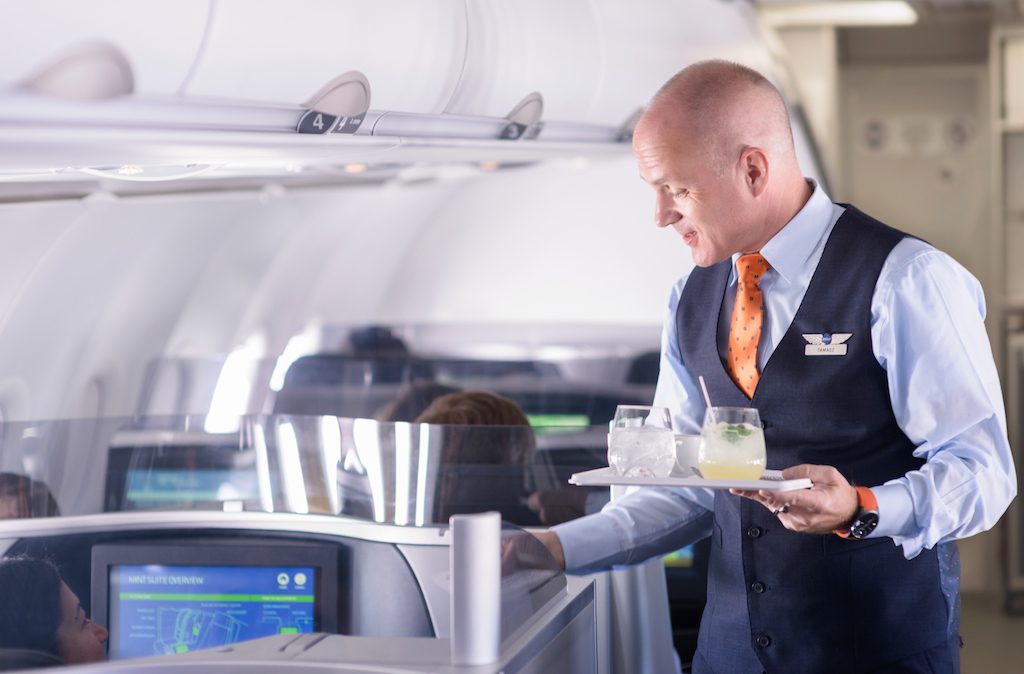Pros and Cons of JetBlue's Possible European Expansion

Skift Take
JetBlue's proposal to fly to Europe isn't a bet-the-company idea. But it's important, and the airline wants to get it right. It's no surprise the airline has been studying transatlantic flights for several years. This year, it expects to finally make a decision.
After teasing customers about flying to Europe for several years, JetBlue Airways will finally make a decision this year, when it will inform Airbus whether it wants a long-range version of the A321 aircraft it already flies.
JetBlue has loyalists in New York and New England who desperately want it to expand to Europe. They suspect JetBlue would disrupt the market as it has the United States with its premium transcontinental flights. In 2014, JetBlue introduced its Mint business class for longer domestic routes, forcing the competition to improve its product and drop fares.
But the decision is not so obvious. JetBlue's competition learned lessons from the domestic expansion, and established airlines on both sides of the Atlantic likely will be ruthless in trying to neutralize it. Plus, the airline might have trouble gaining slots at key airports, such as London Heathrow.
It's possible JetBlue has already decided, and just hasn't announced. But it's also possible the airline is still analyzing it. On Friday, a JetBlue spokesman reiterated that a public announcement will come at some point this year.
Below are some of the issues, both for and against, as we see them.
Here are some arguments for transatlantic expansion.
Defending its Customers
Before U.S. airline merger-mania began in 2008, even the largest carriers couldn't carry their customers everywhere they wanted to go. But after American, United, and Delta all (just about) doubled in size, that changed, with the big three, along with their global partners, flying to nearly every important business city, worldwide.
This has hurt smaller airlines like JetBlue. Its loyal customers love it, but JetBlue cannot fly them everywhere. Passengers have a choice: Do they fly JetBlue when they can, and go with another airline otherwise? Or do they stay with a competitor they like less with a bigger network? Usually, customers receive more perks when they fly only one airline, so some may defect even if they prefer JetBlue.
It's an issue for corporations, too. A Boston-based company may want to sign a contract with JetBlue to appease employees, but it may also need one with Delta,
